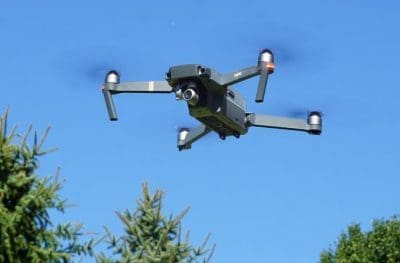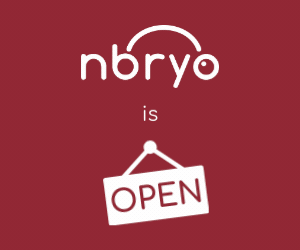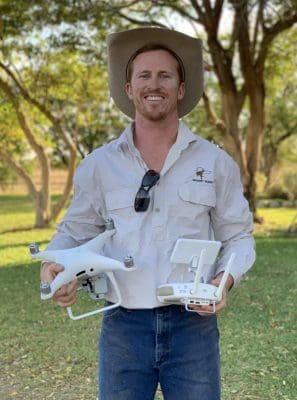A SPATE of animal activist-operated drone flights over feedlots in Queensland has left family operators, owners and employees on edge and questioning the legality of aerial spying activity.
 In recent months an animal liberation group has been flying drones over feedlots in Queensland and posting recorded footage to a website and social media.
In recent months an animal liberation group has been flying drones over feedlots in Queensland and posting recorded footage to a website and social media.
The website, which is also used to attract donations to support the listed charity’s work, publicly lists and identifies the location of more than 70 Queensland feedlots.
Footage posted from each feedlot primarily shows aerial imagery of cattle in pens but also includes examples of feedlot employees being filmed from above.
The animal rights charity claims on its website some of the footage it has collected shows examples of alleged management breaches.
The Australian Lot Feeders Association issued an alert to its members this week, advising of increased drone activity by activists over feedlots.
Responding to a request for comment, ALFA president and Queensland lotfeeder Barb Madden said while the use of drone footage by activists was not new, there has been an increase in reports of drones flying over feedlots in recent years.
“It is disconcerting for operators to be covertly filmed, as feedlots are not only workplaces but often where families live and raise their children,” Mrs Madden said.
“Although ALFA is not aware of specific accidents caused by drones on feedlots, the fact that drone operators must comply with Civil Aviation Safety Authority requirements indicates that drones pose a real risk to human and cattle safety in the event of a failure,” she said.
“CASA’s drone safety rules include restrictions on flying over people and limits on how close drones can be to aircraft and airfields. Suspected safety breaches can be reported to CASA, potentially resulting in fines for the drone operator.
Despite these regulations, it was likely that activist groups would continue to use drone technology to advance their ideologies, often driven by an anti-meat, pro-vegan agenda, Mrs Madden said.
“The best response for feedlots is to continue doing what we do best — ensuring our livestock are well cared for from arrival to departure, and looking after the land we operate on. This is practiced daily by trained teams across Australian feedlots,” she said.
“As an intensive livestock industry, we understand that the community may have questions about our practices, and we are open to engaging with those genuinely curious about how we care for cattle, the land, and our communities.”
“ALFA resources like Australian Grain Fed Beef, established in 2021, and our Virtual Feedlot Tour, launched in 2023, provide transparent insights into feedlot operations and the grain-fed beef industry,” Mrs Madden said.
Ten years of drone history by activists
It is not the first time animal rights activists have used drones for this purpose, with the issue attracting media attention 10 years ago when a NSW liberation group purchased a high-tech $14,000 drone to obtain footage of free-range egg farms and cattle and sheep feedlots.
At the time feedlot industry representatives said the industry was transparent and open to visits from legitimate animal welfare organisations but would not work with vigilante groups seeking to end livestock production.
In 2019 another animal rights group, Aussie Farms, was stripped of its charitable status by Australia’s Charities and Not-for-profits Commission (ACNC) after it published the details of thousands of Australian farming operations on its website and was seen to be encouraging activists to take part in farm invasions.
Then Federal Agriculture Minister David Littleproud, who formally referred the website to the ACNC at the time, described the decision to remove the group’s charitable status as a “win for common sense”, saying charities “did not invade people’s privacy and encourage illegal behaviour”.
Feedlot owners and workers who have spoken with Beef Central this week say they are going to work with the expectation a drone may be hovering above their heads, leading to questions about whether it is safe or legal for operators to use overhead drones to spy on people in their workplace.
The Civil Aviation Safety Authority (CASA) website says drone safety rules require unlicensed operators to be able to see their drone with their own eyes at all times (not using goggles or a screen), and operators must not fly over, above or closer than 30 metre to people.
 CASA requires operators with a Remote Operator’s Certificate (ReOC) to adhere to strict safety and operational guidelines, including obtaining necessary permissions for flying over private property.
CASA requires operators with a Remote Operator’s Certificate (ReOC) to adhere to strict safety and operational guidelines, including obtaining necessary permissions for flying over private property.
Operators who do not hold a ReOC but are operating under the “Excluded Category” (such as the sub-2kg category for commercial work or recreation) must still follow CASA’s standard operating conditions.
This includes not flying over people, maintaining visual line of sight (VLOS), staying below 400 feet, and not operating within 30 meters of people or property.
Commercial drone operator Luke Chaplain from SkyKelpie told Beef Central that CASA does not specifically regulate privacy or trespassing laws but emphasises that operators must comply with all other relevant legislation, including state, territory and local laws.
Nor is the law necessarily clear cut.
Flying a drone over private land without permission can indeed be considered trespass under state and local laws, and if footage is captured, it may also breach privacy laws, he said.
CASA regulations mandate that drones must not be flown closer than 30 metres to people who are not involved in the operation.
 This rule applies to both ReOC holders and operators in the Excluded Category.
This rule applies to both ReOC holders and operators in the Excluded Category.
Mr Chaplain said one of the reasons CASA imposes the 30-metre distance rule is to mitigate the risk of injury or damage in case of a drone malfunction.
“Drones can and do fail, and if they fall from the sky, they could cause serious injury or damage, especially in environments like feedlots where livestock and workers are present.”
Laws can also vary from State to State. In Queensland and other Australian states, flying a drone over private property without the landowner’s consent can be considered trespass, and capturing images or videos could violate privacy laws.
Queensland’s Invasion of Privacy Act 1971, for instance, makes it an offense to record someone without their consent in circumstances where they would reasonably expect privacy.
Depending on the state, biosecurity concerns may also apply when unauthorised drones are flown over agricultural properties. Unauthorised drone flights could introduce or spread pests and diseases, which is why some states have additional regulations regarding drone use in these areas.
In June last year the Federal Department of Infrastructure, Transport, Regional Development, Communication and the Arts last year published Guidelines titled “Don’t pry when you fly: Privacy considerations for done use”.
The guidelines state that drones should be operated “in a way that respects reasonable expectations of privacy, and protects personal information”.
CASA’s website also says people can report concerning behaviour online via its online Drone complaints form.
